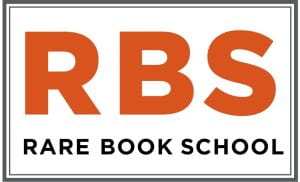The Arts and Politics of East Asia Workshop (APEA) is pleased to announce our schedule for the Winter 2024 Quarter. All events will meet from 3:00 to 5:00pm at the Center for East Asian Studies 319 (1155 E. 60th St.), unless otherwise noticed. As usual, we will send reminder emails with information for the exact time and location prior to every workshop session, along with the link to the pre-circulation materials. For potential meetings via Zoom, we will send the registration link prior to the workshop session. Please join our mailing list to receive event notifications.
WINTER 2024 SCHEDULE
January 12th (online)
Yuanxie Shi, Ph. D. Candidate, EALC
“Lacemaking Ecology and Lacemakers’ Community”
Discussant: Robert Merges, Ph. D. Student, History
January 19th, 4-6pm (in-person)
Graeme R. Reynolds Ph. D., Postdoctoral Instructor, History
Mock Job Talk:
“From Restricted Access to Published Archive: The Circulation and Reception of Official Histories of Koryŏ in Chosŏn (1392–1910)”
January 26th (in-person)
Yeti Kang, Ph. D. Student, Divinity School
“Derrida and Chinese Grammatology: from writing as supplement to the surplus of wen 文”
Discussant: Tyler Neenan, Ph. D. Candidate, Divinity School
February 9th (in-person)
Susanna Sun, Ph. D. Student, EALC & TAPS
“‘Neither Horse nor Donkey’: Nationalization of Voice at Shanghai Music Conservatory in 1958”
Discussant: Jacob Reed, Ph. D. Candidate, Music
★Co-sponsored by the Music and Sound Workshop★
February 23th (in-person)
Nick Ogonek, Ph. D. Candidate, EALC
“Staying Awhile on BL Planet: Genre, Fantasy, and Role-Play in Asahara Naoto’s Kanojo ga suki na mono wa homo de atte boku de wa nai”
Discussant: Jiarui Sun, Ph. D. Student, EALC
March 1st (in-person)
Rina Sugawara, Ph. D. Candidate, Music
“Samurai to Composer: Ozaki Sōkichi ca. 1937”
Discussant: Hoyt Long Ph. D., Professor of Japanese Literature and East Asian Languages and Civilizations
Coordinators: James Kennerly and Danlin Zhang, EALC
Faculty Sponsors: Professor Paola Iovene and Professor Melissa Van Wyk
Please do not hesitate to contact Danlin (danlinz@uchicago.edu) or James (kennerly@uchicago.edu) if you have any questions. We look forward to seeing you at this quarter’s events!





